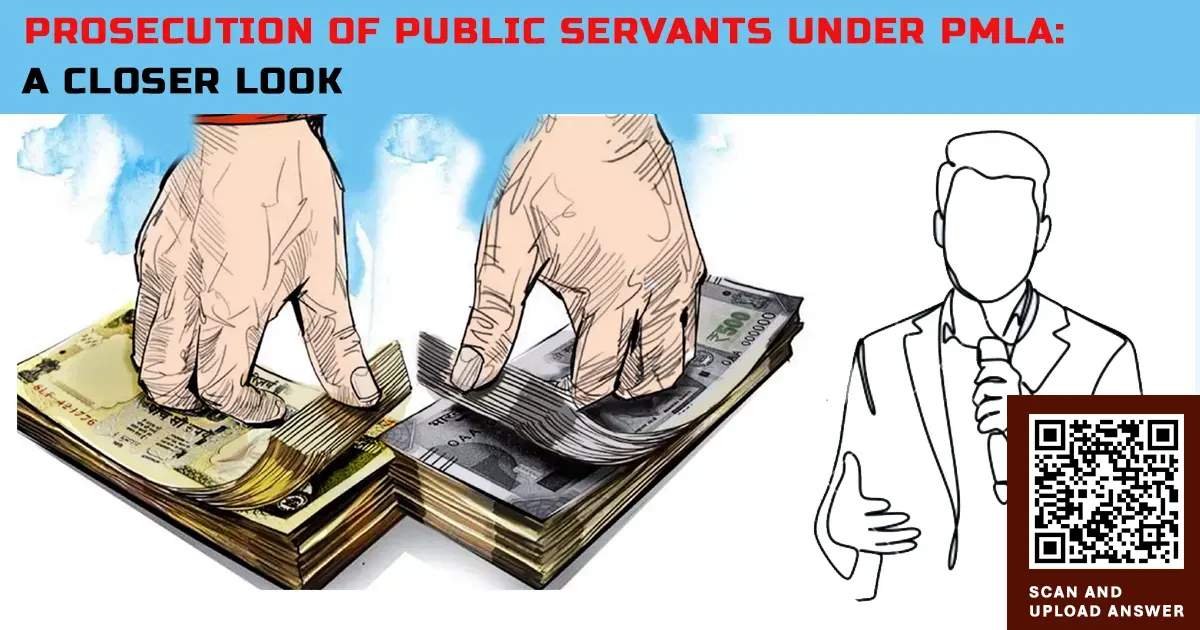
Context (IE): The Supreme Court of India has ruled that prior government sanction is necessary to prosecute public servants under the Prevention of Money Laundering Act (PMLA), 2002.
Understanding the Prior Sanction Provision
Section 197 of the CrPC, 1973:
This section prevents courts from taking cognizance of offences allegedly committed by judges, magistrates, or public servants in the course of their official duties unless prior approval is obtained from the government. This provision is carried forward under Section 218 of the BNSS, 2023.
Objective:
The provision is designed to protect public servants from frivolous or unwarranted legal action, ensuring that they can make decisions in good faith without fear of prosecution.
Exceptions:
However, prior sanction is not required in cases involving specific serious offences, such as crimes against women (e.g., rape, sexual harassment) and human trafficking.
Interaction between PMLA and CrPC
- Section 65 of the PMLA: Provisions of the CrPC apply to PMLA cases unless they conflict with the provisions of the PMLA.
- Section 71 of the PMLA: In cases of conflict, the provisions of the PMLA take precedence over other laws.
Constitutional Safeguards for Civil Servants
Part XIV of the Constitution:
This section pertains to services under the Union and State governments.
- Article 309: Grants Parliament and State legislatures the authority to regulate the service conditions of civil servants.
- Doctrine of Pleasure (Article 310): Civil servants serve at the pleasure of the President or Governor. However, this power is subject to limitations.
- Article 311: A civil servant can only be dismissed or demoted by their appointing authority or a higher authority, and any such action must involve an inquiry where the individual has a fair chance to present a defense.
How the Prior Sanction Provision Functions
- Sanction Authority:
- For public servants associated with Union affairs, the Central Government must provide the sanction.
- For those involved in State matters, the State Government grants the approval.
- Scope of Protection:
The provision does not offer blanket immunity to all actions of a public servant. It applies only to acts or omissions directly related to the discharge of official duties. - Judicial Interpretation:
In Devinder Singh v. State of Punjab (2016), the Supreme Court emphasized that the sanction provision is intended to protect honest officers, allowing them to carry out their duties diligently and in the public interest. However, this protection cannot be used as a shield for criminal misconduct.
[box] “Examine the necessity of prior government sanction for the prosecution of public servants under the Prevention of Money Laundering Act (PMLA). How does this provision interact with the constitutional safeguards for civil servants, and what are its implications for accountability and governance?”
[button color=”purple ” size=”medium” link=”https://forms.gle/Wzz7M6oVE4bQS8Ws8″ icon=”” target=”true”]Upload Answer[/button]
[/box]




